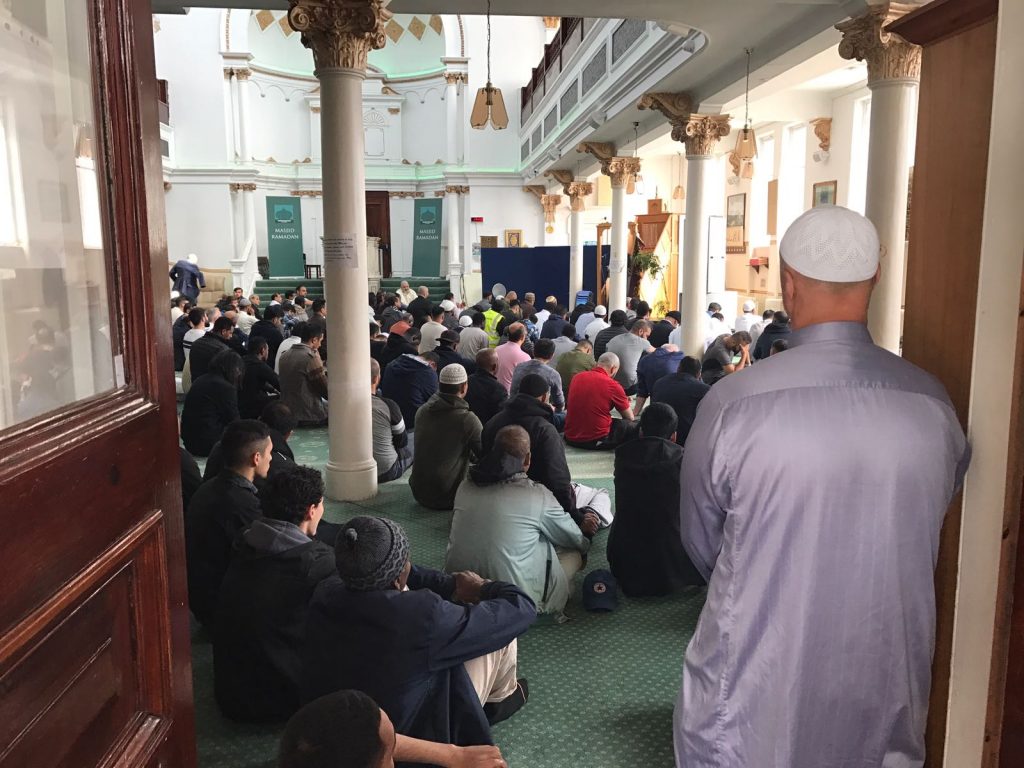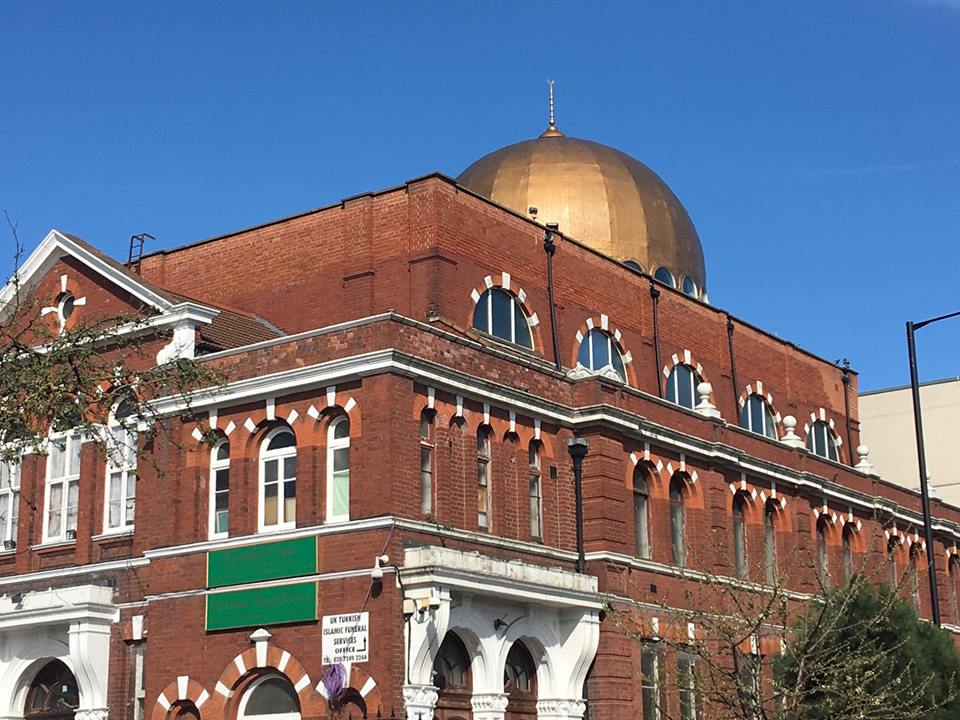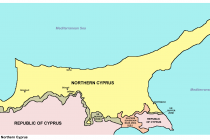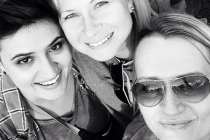My name may not give it away, but I am in fact, a practicing Muslim. I accepted Islam in early 2018, and since then, I have visited mosques all over London. Plenty of these spaces are full of beauty, warmth and spiritual calm, but one of these in particular stands out.
Shacklewell Lane Mosque, also known as Masjid Ramadan, sits just off Stoke Newington Road in Hackney. The mosque is Britain’s first Turkish-owned house of prayer and may also be the first in the UK to have taken the revolutionary step of accepting donations in crypto-currencies such as bitcoin — a move that has earned it international acclaim.
These, however, are not the only characteristics that make this place special to me.
Shacklewell Lane Mosque has a number of features and qualities that in my humble opinion earn it the title of “pillar of the community.”
At a time when the coronavirus has mosques across Britain, Turkey and elsewhere around the world closed during the holy month of Ramazan / Ramadan, I have decided to share some of my own thoughts about why this mosque is so unique.
So, without further ado, these are the top four things I love about Masjid Ramadan in no particular order:
1. Masjid Ramadan tells the story of modern London
The significance of Shacklewell Lane Mosque is far bigger than just bricks, mortar and the British Turkish community. To me, the mosque is a living embodiment of the tale of modern London.
The mosque tells the story of different communities travelling far from home in search of a better life.
“Why this mosque in particular?” you might ask. This goes back to the building’s original purpose before it was acquired by the Turkish Cypriot community in 1977.
The mosque we know today started life in 1903 as the Stoke Newington Synagogue, which in turn was founded as a successor to the New Dalston Synagogue. The synagogue was built to cater to the large Jewish community of East London, a considerable part of which had fled anti-Semitic pogroms and persecution in the Russian Empire in the late nineteenth and early twentieth centuries.
Later the synagogue closed in 1976 and its congregation united with Hackney Synagogue. The next year the UK Turkish Islamic Trust led by Ramadan Güney acquired the building and the surrounding land and converted it into the mosque we know today. The mosque was intended mainly to serve the religious needs of London’s Turkish Cypriot community, many of whom had escaped oppression and attacks from Greek nationalist militias, inter-communal violence and financial hardship in Cyprus in the 1950s and 60s.
The parallel is clear as day, the building we now know as Masjid Ramadan tells two chapters of the same story. The building provided invaluable solace, support and service to two communities that fled their countries of origin seeking a brighter future for themselves and their families in Britain in very similar circumstances.
The third chapter is being written in real time as the mosque now works for a highly diverse local Muslim community.
2. Shacklewell Lane Mosque has an Ottoman connection

As a committed and unashamed history buff with a passion for Ottoman history (due in part to my own Hungarian heritage), I was fascinated to discover that Masjid Ramadan has an intimate and special connection to the Ottoman Empire.
In 2006 the funeral of Dürrüşehvar Sultan, the daughter of the last Ottoman Caliph Abdülmecid II, was held on Shacklewell Lane.
An Ottoman Princess until the dissolution of the sultanate in 1922, Dürrüşehvar Sultan went on to marry Prince Azam Jah, the son of the Indian ruler the Nizam of Hyderabad. The princess spent her remaining years between London and India, and was fluent in Turkish, French, English and Urdu.
Upset at the Turkish Government’s refusal to bury her father in Istanbul after his death in 1944 after around 20 years of exile, Dürrüşehvar Sultan refused to be buried in Turkey. After her own passing in London some 60 years later, Masjid Ramadan was the place of her cenazeor janazah (funeral) prayers before her burial at Brookwood Cemetery.
In my view, this intimate connection to a world-renowned dynasty is worthy of recognition as a piece of local history that would warrant a special memorial plaque like many others found around London.
3. The mosque reflects its diverse congregation
For those who attend prayers at Masjid Ramadan, a favourite Qur’anic verse of mine, the 22ndverse of Chapter 30, known as The Romans, regularly comes to life:
“And of His signs is the creation of the heavens and the earth and the diversity of your languages and your colours. Indeed, in that are signs for those of knowledge.”
Although originally intended for Turkish Cypriots and still catering to the religious needs of that community by providing services such as burials in Britain and repatriation to North Cyprus, the mosque has grown to accommodate the many Muslims from a variety of ethnic, cultural and national backgrounds who now call Hackney home.

This is even reflected in the many different imams who lead prayers at Masjid Ramadan. The mosque regularly rotates its imams and preachers to make sure that no single cultural group can dominate it. The breadth of nationalities is incredible, and worshippers can expect to pray behind imams from as wide a breadth as Nigeria, Pakistan, Bangladesh or Turkey to name a few.
To me this simultaneous celebration of both similarity and difference is in closer step with the spirit of Islamic teachings and values than many other London mosques that tend to focus on one particular cultural or national group. This beautiful feature of the mosque is part of what makes it such a special and welcoming space.
4) The mosque engages with the local community openly & inclusively
The fourth and final thing that I love about Masjid Ramadan is how the mosque has fostered an open and inclusive environment for the entire local community to engage with. As the founder’s son and mosque chairman Erkin “Egg” Güney puts it, “All I have is love, love and a good intention, and I use it.”
The mosque’s management understand that practicing Islam is a marathon, not a sprint, in which believers are meant to improve themselves by working on their characters and their relationships with the Creator step by step – let’s not forget that the Qur’an was revealed over a period of 23 years, not all at once!
The Shacklewell Lane team appreciate that Muslims are all at different stages of that journey, whether just starting out or approaching the end, and so naturally will be experiencing the religion in varying ways and at different levels.
I saw how well the management walked the walk when it comes to this all-important principle last Ramadan at a community iftar (fast-breaking meal) that the mosque co-sponsored with the Metropolitan Police on24 May, 2019. I was happy to see such an inclusive event with both vegetarian and meat options, and a varied group of people both Muslim and non-Muslim.
The event welcomed people of different ages, styles and backgrounds, young and old, male and female including women covered from head-to-foot and men with large beards, prayer caps or takkes and long robes, as well as men in jeans and shirts with clean-shaven faces and women with uncovered hair.
While some Muslims may accuse the mosque of deviating from the norm by allowing for a non-gender segregated event without a dress code to go ahead, it is worth reminding people that our beloved Prophet Muhammad (peace be upon him) was fundamentally inclusive, welcoming as many people as he could to expose them to the beautiful message of Islam, regardless of how they looked or behaved, both before and after they became Muslims.
For me, as a new Muslim myself, I found this gentle approach welcoming and encouraging, what’s more, it made my newly practicing wife feel comfortable and included as well, which also won my appreciation. If anything, this iftar was ideal for people just starting out on their journey, who might otherwise be put off by harsher and stricter environments.
The event also presented an opportunity to benefit the wider community as well. The fact that the mosque co-organised the iftar with the Metropolitan Police offered a chance to break down barriers between local people and the police. Steps like these are important to help remove the mistrust of law enforcement that exists in some Muslim and Black and Minority Ethnic (BAME) communities.
Alongside events like these, I also appreciate that Masjid Ramadan is wheelchair accessible, and that the management intend to add disabled toilets once sufficient funding is available. In my experience, regrettably such reasonable adjustments for disabled people are often the exception rather than the rule.
It’s brilliant to see an Islamic place of worship striving to include as many people as possible, serving as a shining example of community spirit.
So, once the coronavirus restrictions are lifted, next time you’re in Dalston, why not pay a visit to this fantastic but under-appreciated London landmark.




